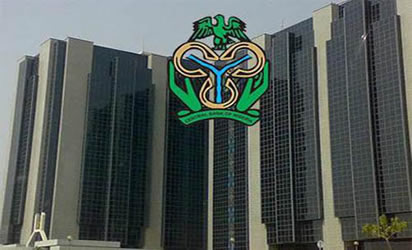THE Central Bank of Nigeria (CBN), having reviewed and incorporated comments from various stakeholders, has issued guidelines for the regulation and supervision of Credit Guarantee Companies (CGC) in Nigeria.
This, it says, would provide guidance on regulatory expectations from credit guarantee companies in Nigeria.
A CGC is an institution licensed by the CBN with the primary objective of providing guarantees to banks and other lending financial institutions licensed by the CBN, hereinafter referred to as Participating Financial Institutions (PFIs), against the risk of default by borrowers.
These guidelines, according to the apex bank, stipulate the minimum standards for the operations of CGCs in Nigeria.
“The provisions of these guidelines shall apply to CGCs licensed by the CBN; PFIs shall comply with the provisions of these guidelines as it relates to their activities. PFIs may apply for and obtain a guarantee from only CGCs licensed by the CBN, for any loan granted to MSMEs.
“A CGC may guarantee only loans originated by PFIs excluding impaired assets that had been acquired,” the banking sector regulator stated in the guideline obtained from its website.
The application for CGC licence shall be processed in two stages, namely:
Approval-in-Principle (AIP) and final licence..
It clarified that any promoter(s) seeking a licence to operate a CGC in Nigeria shall apply in writing to the governor of the CBN and submit the following documents with the application: “a non-refundable application fee of N100,000 only, or such other amount as the CBN may specify, in bank draft payable to the CBN or CGC application and licensing account;
“Evidence of deposit of the specified minimum paid-up capital requirement of N10 billion or any other amount that may be prescribed by the CBN into FPRD CGC Share Capital Account. Promoters should note that in compliance with the BOFIA 2020, the investment of share capital deposit shall be subject to availability of investment instruments. Upon the grant of licence or otherwise, the CBN shall refund the sum deposited to the promoters, together with the investment income, if any, after deducting administrative expenses and tax on the income.
“Evidence of capital contribution made by each shareholder; evidence of name reservation with the Corporate Affairs Commission (CAC); detailed business plan or feasibility report,” it stated.
The CBN said this is part of its efforts to stimulate lending to Micro, Small and Medium Enterprises (MSMEs).
The guidelines stipulate minimum licensing governance and prudential requirements for prospective Credit Guarantee Companies.
Fees, charges and commission by a CGC shall follow the applicable guide to charges by banks and other financial institutions, or any other directive as may be specified by the CBN from time-to-time, the bank further stated, adding that it reserves the right to revoke a CGC licence where there is evidence of insolvency, misuse of the licence, unauthorised cessation of business for any continuous period of six months or any period aggregating six months during a continuous period of 12 months, or breach of the CGC guidelines.
ALSO READ FROM NIGERIAN TRIBUNE
- Bandits Storm Kaduna Airport, Stop Aircraft From Taking Off
- Lagos Socialite Who Distributed Petrol As Souvenir Sentenced To Two Years Imprisonment, Gets Fine Option
“Absolutely, When we came with the Buhari government in 2015 I became the minister. We were committed to a roadmap to establish a National Carrier, to concession the airports, to set up a leasing company, to establish cargo facilities and we have been doing that.”
On why the Buhari government wanted a national carrier, the minister responded: “Nigeria is situated at the centre of Africa, equidistant from all locations in Africa. 30.4 million square kilometres miles, 1.5 billion people, very green land. If Central and Eastern Africa is the belt of the continent, then Nigeria is the buckle. 200 million people and rising middle class, propensity to fly is high. Nigeria is a candidate for National Carrier.”
Sirika who insisted that the coming national carrier will be private sector driven added; “Private. Yes. 5 per cent government and no government stepping right in that company, no government control, no membership of government on board. Totally private and committed.
“Whatever we say we will do as a government since 2015, it has happened. that is why Tim Clark of Emirates, Qatar Airways and all of them are looking to go into Nigeria in multiple frequencies and multiple landing points because Nigeria is the right place for the airline business.
How Workplace Sexual Harassment Forces Many Out Of Their Dream Jobs
FG expresses commitment towards private driven aviation sector
WATCH TOP VIDEOS FROM NIGERIAN TRIBUNE TV
- Let’s Talk About SELF-AWARENESS
- Is Your Confidence Mistaken for Pride? Let’s talk about it
- Is Etiquette About Perfection…Or Just Not Being Rude?
- Top Psychologist Reveal 3 Signs You’re Struggling With Imposter Syndrome
- Do You Pick Up Work-Related Calls at Midnight or Never? Let’s Talk About Boundaries







